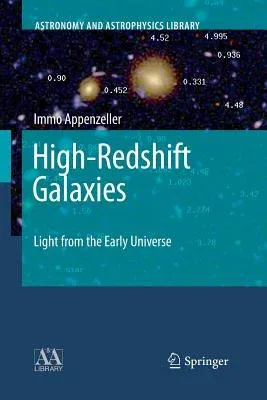Immo Appenzeller
(Author)High-Redshift Galaxies: Light from the Early Universe (Softcover Reprint of the Original 1st 2009)Paperback - Softcover Reprint of the Original 1st 2009, 23 August 2016

Qty
1
Turbo
Ships in 2 - 3 days
In Stock
Free Delivery
Cash on Delivery
15 Days
Free Returns
Secure Checkout

Part of Series
Astronomy and Astrophysics Library
Print Length
352 pages
Language
English
Publisher
Springer
Date Published
23 Aug 2016
ISBN-10
3662518104
ISBN-13
9783662518106
Description
Product Details
Author:
Book Edition:
Softcover Reprint of the Original 1st 2009
Book Format:
Paperback
Country of Origin:
NL
Date Published:
23 August 2016
Dimensions:
23.39 x
15.6 x
1.93 cm
Genre:
Science/Technology Aspects
ISBN-10:
3662518104
ISBN-13:
9783662518106
Language:
English
Location:
Berlin, Heidelberg
Pages:
352
Publisher:
Weight:
512.56 gm